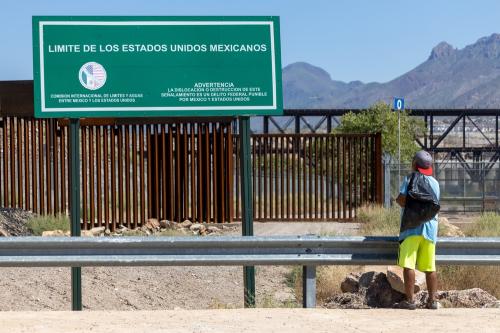PEACE DEAL REACHED IN CENTRAL AFRICAN REPUBLIC
Last week, a peace deal was reached between the government of the Central African Republic and 14 armed groups as a result of talks that began January 24 in Sudan’s capital Khartoum. The agreement, which was mediated by the African Union, is the eighth since fighting began, but the first to emerge from direct dialogue that incorporated representatives of armed groups. Details of the agreement have yet to be released, as three parties to the peace deal have yet to sign.
The deal seeks to end five years of religious and communal fighting which has killed thousands, displaced hundreds of thousands, and seen two militia leaders tried at the International Criminal Court. The conflict began in 2013 when predominantly Muslim Seleka rebels seized power in the capital city of Bangui, prompting a response by mostly Christian anti-Balaka militias. After a period of relative peace, violence intensified and spread last year. Armed groups currently control around 80 percent of the Central African Republic and compete over land rich in gold, diamonds, and uranium.
Implementation of the deal is expected to be difficult, as no one group has comprehensive authority over the entirety of the Central African Republic’s territory.
US IMPOSES VISA SANCTIONS ON GHANA
On Thursday, Department of Homeland Security Secretary Kirstjen Nielsen announced that the United States would be implementing visa restrictions on Ghana, although the specific visa categories have not yet been disclosed due to the Ghanaian government’s refusal to accept deported Ghanaian nationals. In her statement, she said, “Ghana has failed to live up to its obligations under international law to accept the return of its nationals ordered removed from the United States.” The U.S. will maintain the restrictions until cooperation from Ghana on removals has improved to “acceptable levels.”
In response to the sanctions and allegations, Ghana’s Ministry of Foreign Affairs and Regional Integration issued a statement, saying: “The ministry wishes to state that these allegations are unfounded and the sanctions imposed on Ghana are without any justification whatsoever.” The ministry’s statement concluded that it was looking into the U.S. sanctions and would issue an appropriate legal measure in response in due time.
In 2015, Ghana was the country with the highest number of applicants to the U.S. diversity visa program, commonly known as the “green card lottery,” with 1.73 million Ghanaian citizens applying to the program, 7 percent of the country’s population.
SOUTHERN AFRICAN REGION NATURAL RESOURCES ROUNDUP
Botswana is set to construct a new heavy haul railway from the Mmamabula area to South Africa’s Lephalale coalfields. Linking the coal deposits in Botswana to the Transnet Freight Rail network will open access to ports, and, by extension, the global export market for coal. The move is in line with the government-led focus on diversifying the predominantly mining-driven economy. Botswana’s coal resources are estimated at 200 billion tons and are largely unexploited.
In South Africa, the first ever deep-water oil and gas resources discovery, termed the Brulpadda find, may prompt competitive extraction activities off the coast as the country works to cut its reliance on imported fuel. The discovery was made by Total, a major French multinational oil company. Patrick Pouyanne, Total’s CEO, estimated the discovery at about 1 billion barrels, enough to supply South Africa’s refineries for almost four years. The find “is potentially a major boost for the economy,” South Africa’s Minerals Minister Gwede Mantashe said. South Africa has long relied on oil imports to meet its domestic needs.
In Zambia, Africa’s biggest copper mine may be sold if a tax impasse goes unresolved. Barrick Gold is looking to offload their Lumwana Copper Mine in Zambia’s North-Western Province in response to an increase of 1.5 percentage points for mining royalties and the introduction of a 10 percent royalty rate when copper prices rise above $7,500 a ton.



Commentary
Africa in the news: Peace in Central African Republic, US visa sanctions on Ghana, and natural resources in Southern Africa
February 9, 2019